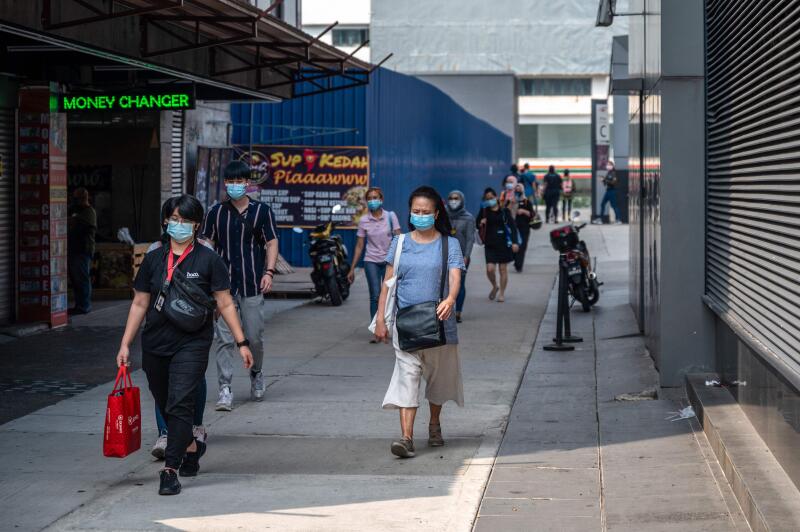Malaysia lifts MCO as cases taper down, vaccination drive kicks in
Sign up now: Get insights on the biggest stories in Malaysia

Inter-district travel within a state will be allowed, with the exception of Sabah.
PHOTO: AFP
Follow topic:
KUALA LUMPUR - Malaysia will ease its public health restrictions and travel curbs starting Friday (March 5), a week after kick-starting its mass inoculation campaign for Covid-19.
Senior Minister (Security Cluster) Ismail Sabri Yaakob announced on Tuesday (March 2) that Malaysia's economic powerhouse states of Selangor, Johor and Penang along with the Kuala Lumpur federal territory will exit the Movement Control Order (MCO).
The MCO was imposed on Jan 13 and extended twice as coronavirus surged, with a record daily high of 5,728 logged on Jan 30.
Daily cases have since tapered down and Malaysia's National Covid-19 Immunisation Programme started last week, with health workers, teachers, firemen and elected lawmakers queuing up daily to be inoculated. More than 32,000 have been inoculated as of Monday.
Malaysia reported 1,555 new cases on Tuesday, the lowest daily infection reported this year, with a cumulative total of 304,135.
Selangor, Penang, Johor and KL will enter the mid-tier Conditional MCO (CMCO) from Friday, with travel between districts of the same state allowed.
But travel between states will still be banned to curb the potential spread of the coronavirus, said Datuk Seri Ismail Sabri. In Sabah, which is also under CMCO, inter-district travel remains banned.
While Malaysia has continued to register four-digit new infections daily since the beginning of this year, recoveries have outpaced new infections in the past month.
Total active cases - patients being treated for Covid-19 - peaked at 52,186 on Feb 10, raising concerns among officials about the availability of beds at health facilities.
But on Tuesday, active cases totalled 24,563 - a 52 per cent drop from the peak.
Malaysia reintroduced the MCO - the strictest form of restrictions where only certain sectors of the economy were allowed to operate - from mid-January following a surge in coronavirus cases in December and early January. The MCO was first imposed in March last year and lasted until July.
The surge was blamed on Malaysia reopening much of its economy ahead of Christmas and New Year celebrations.
Under the second-tiered CMCO, more business activities are expected to be allowed, although all shops and malls will continue to adhere to health protocols such as checking the temperatures of visitors. There have been regular calls by businesses to reopen the economy faster to avoid deeper economic hit and job losses.
Mr Ismail Sabri said that the rest of the country, including the federal territories of Labuan and Putrajaya, will come under the Recovery Movement Control Order, the third tier and lightest form of curbs.
Malaysia started taking deliveries of the coronavirus vaccine late last month and started vaccination last Wednesday (Feb 24).
The National Pharmaceutical Regulatory Agency (NPRA) last month approved the registration of the Pfizer-BioNTech vaccine. On Tuesday, it okayed the use of AstraZeneca and Sinovac vaccines.
Russia's Sputnik V is applying to join the list.
The imminent lifting of the MCO comes as there are increasing demands to allow vaccinated foreign nationals to enter Malaysia via travel bubbles.
Johor Menteri Besar Hasni Mohammad on Monday said that the state government is proposing a travel bubble with Singapore to allow entrance for people who have been vaccinated.

